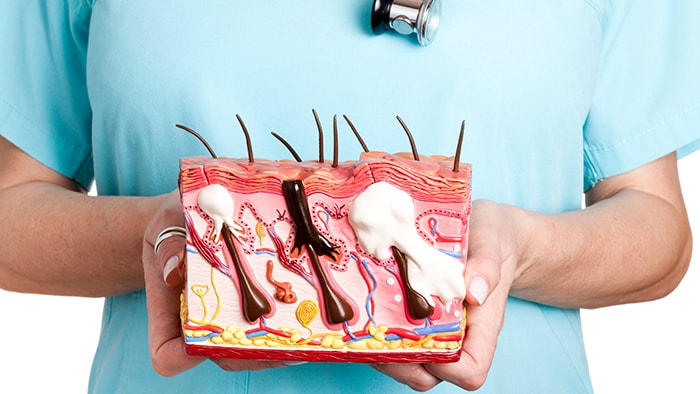Exfoliation. It might be a word you know well, it might be a word you know but don’t know the meaning of, or it might be the first time you’ve even seen the word. Whatever the case may be, it’s time to make exfoliation a part of your regular skincare routine. You’re shedding countless skin cells each day and replacing them with brand new cells, which is pretty incredible to think. But as you probably know, dirt and grime contributes to breakouts and other skin conditions, and if you’re not careful your dead skin cells can become part of the problem. You can’t stop the skin cells dying, it’s a natural process that keeps your skin healthy, but what you can do is prevent them from hanging around on your skin after their expiration date. In practice exfoliation is a process designed to gently remove dead skins cells from the surface of your skin. There are a number of ways you can do it, including using specially formulated facial scrubs, exfoliating gloves or chemical exfoliation kits, to name just a few. All of these products and techniques are designed to remove lingering dead skin cells, which helps to prevent dry patches of skin, and also minimises the chances of some dead cells going rogue, blocking your pores and causing acne. Exfoliation doesn’t have to take long and it can play an important part in any skincare routine. Be careful though, and keep in mind that despite the large number of skin cells you’re shedding each day, there’s only so many dead cells to remove. Weekly exfoliation will be fine for most guys, but consider reducing it to fortnightly if you suffer from sensitive skin. When done correctly, exfoliating will leave your skin feeling clean and fresh, removing dead skin cells and encouraging blood flow in your skin, which in turn gives you a healthy complexion. It doesn’t have to take long, but your live skin cells will look and feel better for having said goodbye to their deceased brethren.
-
![No-nonsense, 10 minute skincare routine for men]()
No-nonsense, 10 minute skincare routine for men
Read the article -
![Welcome to you: a beginners guide to your skin]()
Welcome to you: a beginners guide to your skin
Read the article



